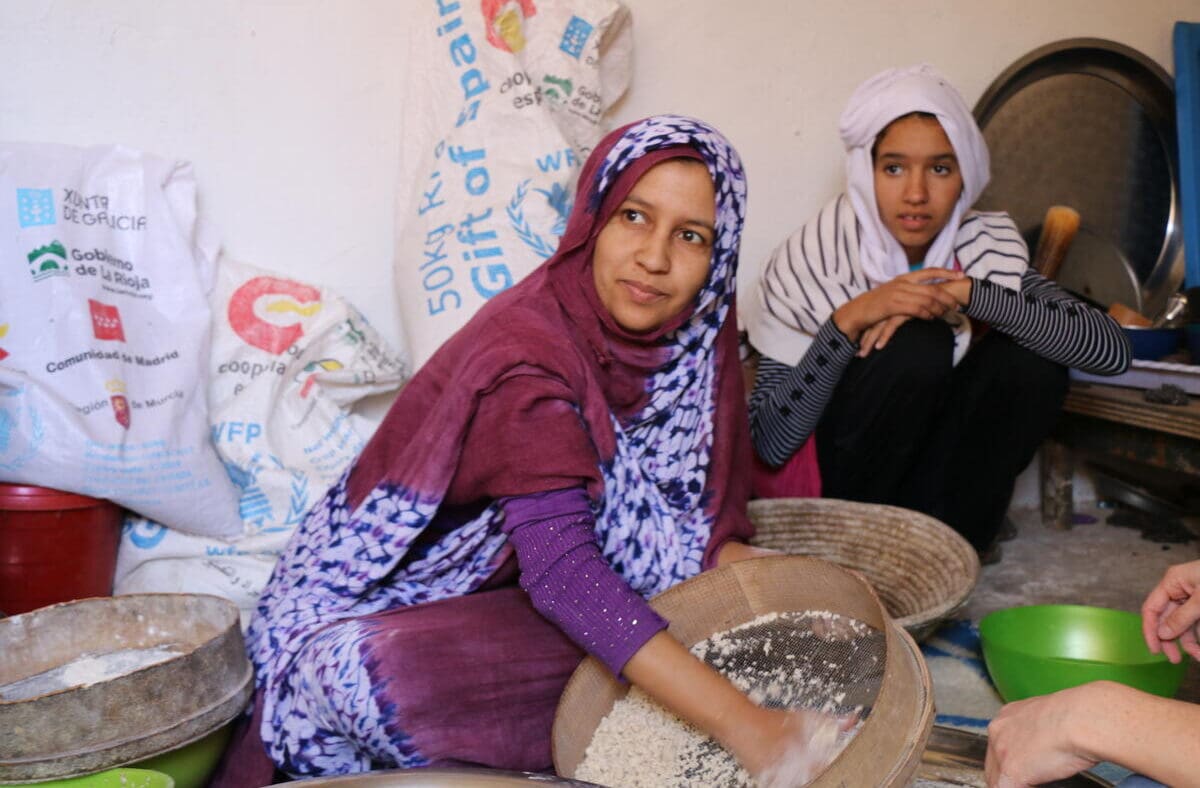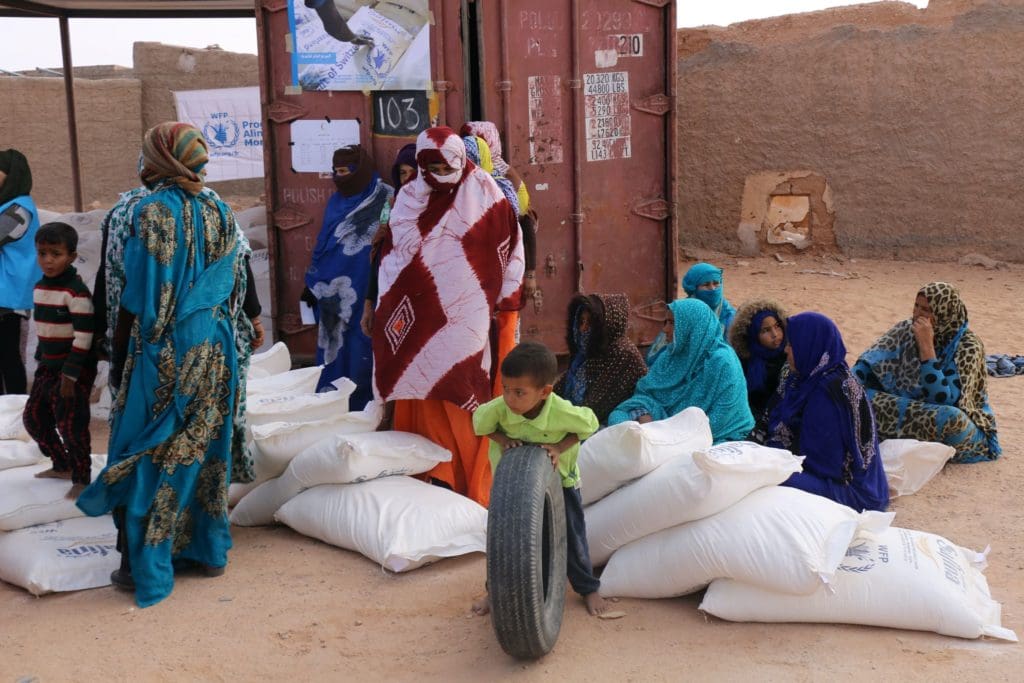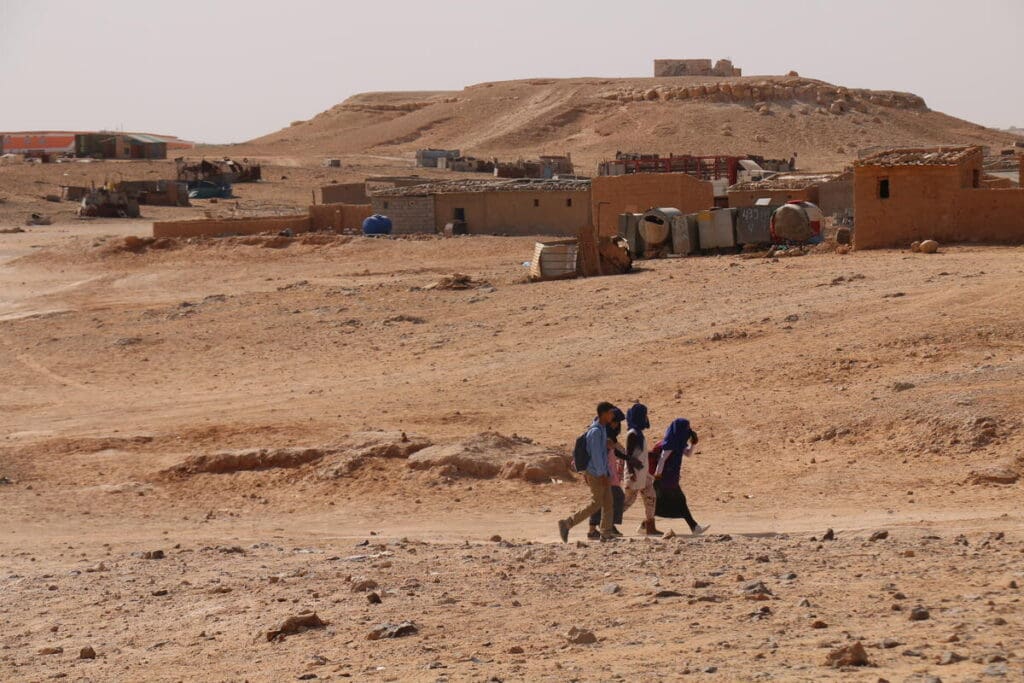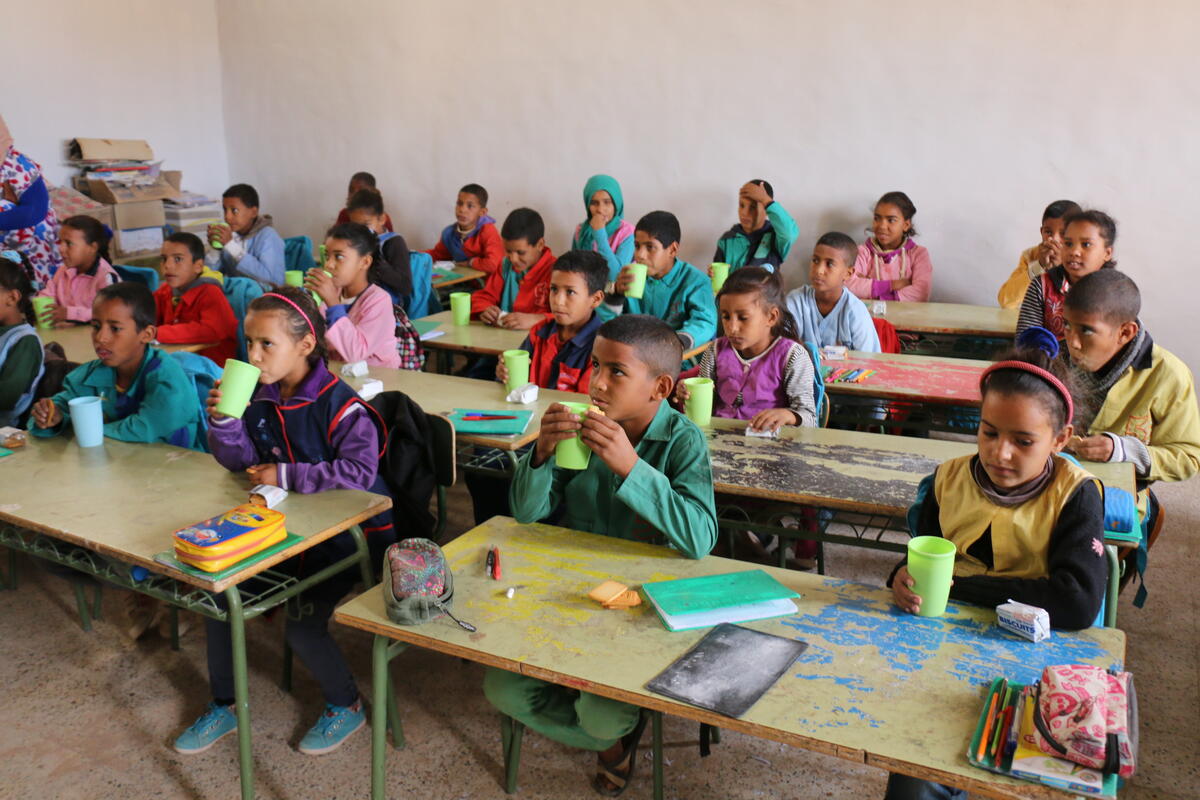
Algeria
Hunger in Refugee Camps
Refugees in Algeria are suffering from food insecurity and nutritional deficiencies. You can help us deliver lifesaving food and school meals.
Refugees in Algeria live in harsh desert conditions, which limit their ability to be self-reliant, resulting in food insecurity and malnutrition.
of Sahrawi refugees are food insecure
camps for Western Saharan refugees
of women suffer from anemia today

one of the Longest refugee Crises in the world
Algeria has been hosting refugees from Western Sahara since 1975, making it one of the longest-running refugee crises in the world. The Sahrawi refugees live in five camps near the town of Tindouf – a harsh, isolated desert environment of western Algeria where opportunities for self-reliance are limited, forcing them to depend on humanitarian assistance for their survival. 30% of Sahrawi refugees are food insecure and 58% are at risk of food insecurity.
The prevalence of anemia in Algeria is alarmingly high, with more than half of children under the age of 5 and women of reproductive age affected. In addition, poorly diversified diets and a lack of nutritional awareness result in overlapping nutritional problems including mineral and vitamin deficiencies and overweight/obesity in women.
Despite continued negotiations, the political situation remains unsolved so refugee camps have been the only alternative for Sahrawi refugees. The status quo has fueled anxiety and disillusionment, especially among the young population, which could lead to increased insecurity and tensions in the sub-region.

WFP’s Work in algeria
At the request of the government of Algeria, the United Nations World Food Programme (WFP) has been supporting the hungriest refugees since 1986, covering basic food and nutrition needs.
In 2021, WFP programming supported 138,421 people in Algeria. 23,022 MT of food was distributed and nearly $1M distributed through cash-based assistance.

WFP distributes almost 134,000 food rations to refugees per month. Food baskets are handed out through 116 distribution points in all five refugee camps and include several types of cereals, beans, sugar and vegetable oil.


WFP combines prevention and treatment approaches to address anemia, stunting and malnutrition among children under the age of 5, and pregnant and nursing women through 29 nutrition centers.


To encourage children to enroll in, and attend school, WFP provides daily mid-morning snacks – in the form of milk and fortified biscuits– to around 40,000 children in all 31 kindergartens, 26 primary schools, 10 intermediary schools, 10 special needs centers and five koranic schools in the refugee camps. WFP also rehabilitates and constructs school kitchens and stores.


WFP implements complementary activities that improve Sahrawi refugees’ food security and nutrition. This resilience-building approach includes activities like green fodder production using low-tech hydroponics and a fish farm.

Help save lives by sending food
You help deliver food to vulnerable populations in Algeria and other countries by donating to WFP.
What’s happening in Algeria?
Read the latest news updates and stories from Algeria.


